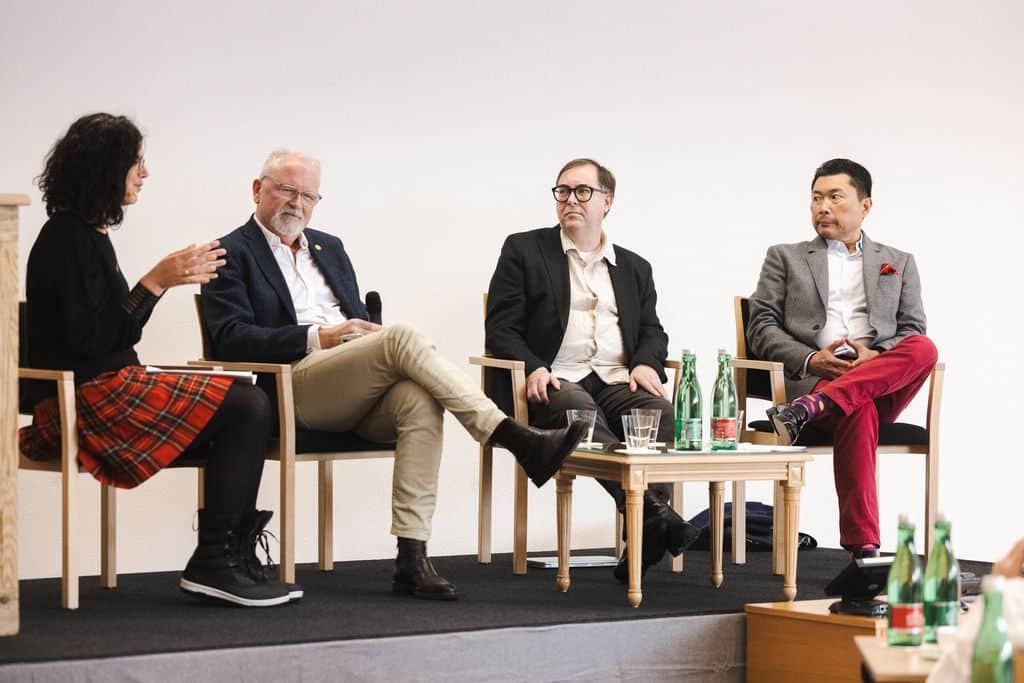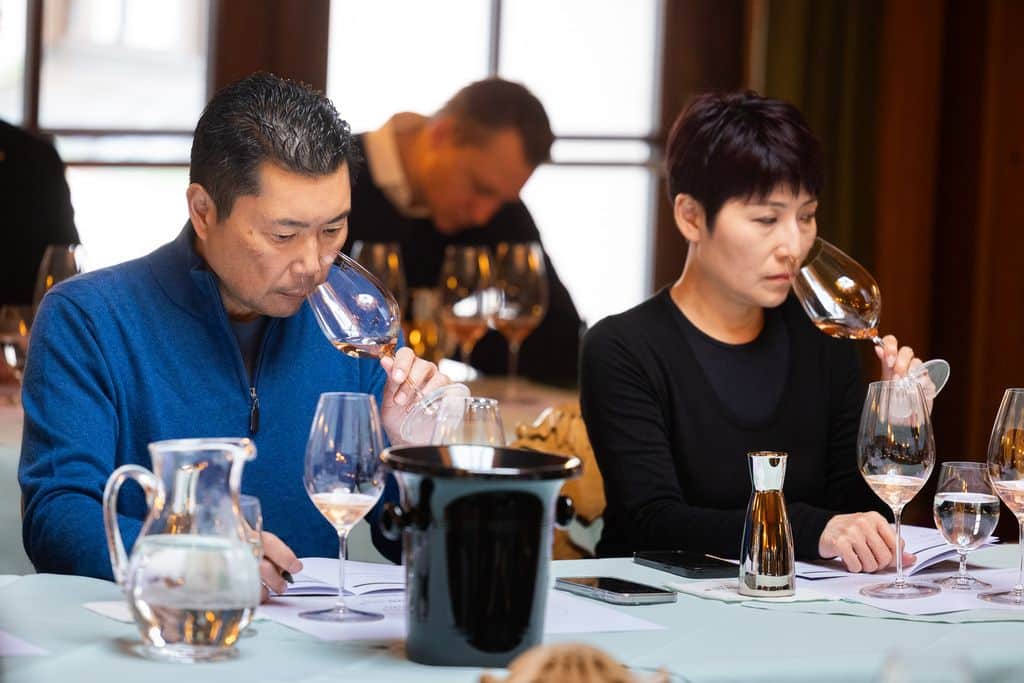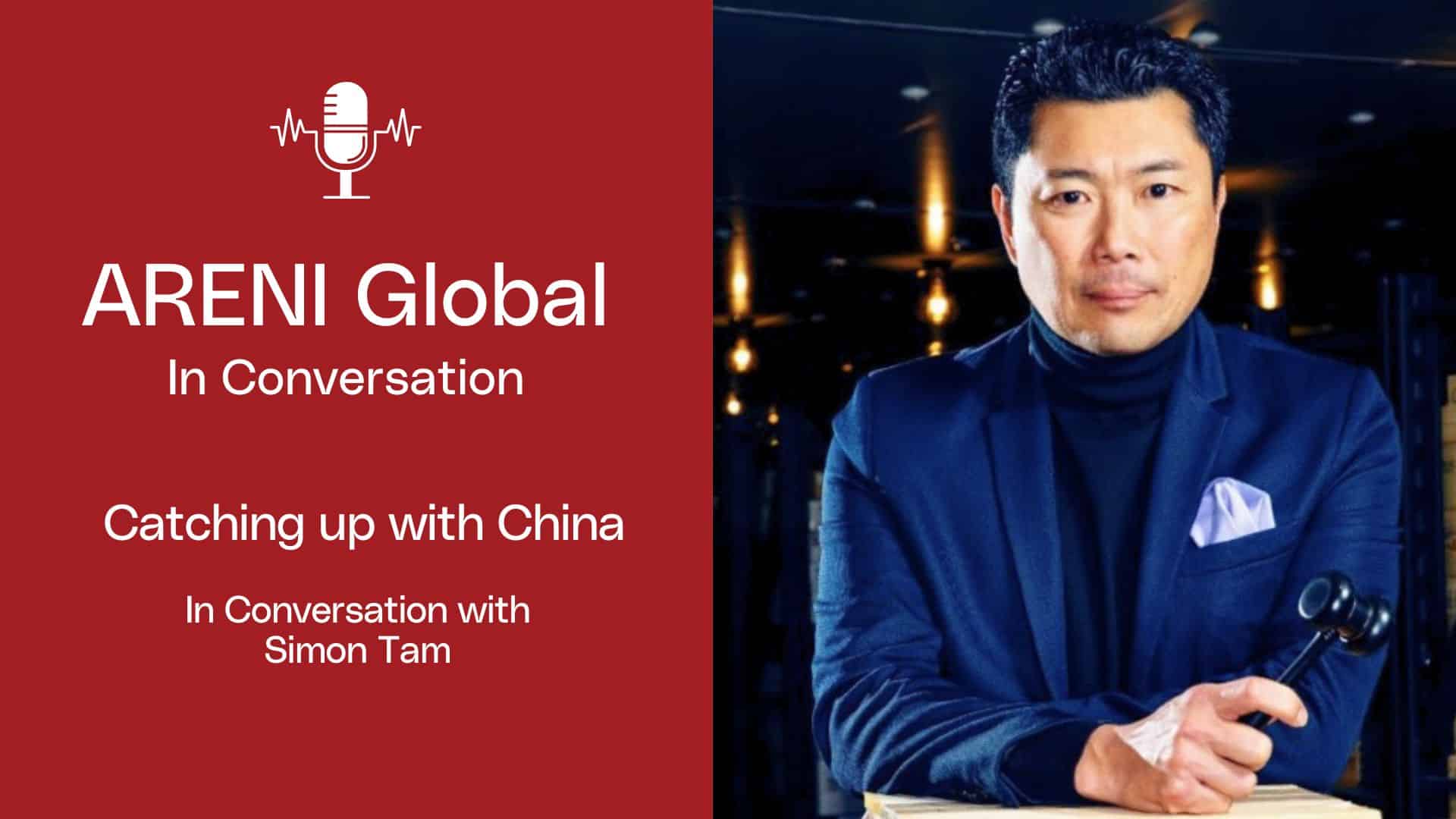Catching Up With China: In Conversation With Simon Tam
April 25, 2024
Simon Tam is one of Southeast Asia’s most sought-after wine professionals. A pioneer of wine education in Hong Kong, Shanghai, and Macau, he was previously Head of Wine Asia for Christie’s. He consults with Moët Hennessy Asia Pacific, A.S. Watson, and New Zealand Winemakers and is the co-founder of the Catha Pacific International Wine and Spirits Competition. A multi-award-winning wine professional, he is a wine writer, judge, speaker, and regional event manager, and is the founder of Aeos Auctions. Keep reading for more of our Simon Tam podcast.
Simon Tam:
I was born in Hong Kong in 1968, and my mother for a long time cursed me every day for being a very heavy baby—I was a 12-pounder. In 1979—or 1976 or 1977—my mother decided that the 1997 British handover of Hong to China was something that she didn’t want to participate in. So we left Hong Kong. We went to Australia and that’s where I grew up. Our family were restaurateurs. They opened up quite a few restaurants and they were the first to bring Chinese culture to the beautiful city of Adelaide, which I still call my other home.
I befriended our executive chef. He taught me a lot about flavours. He talked to me about flavours and cooking. Out of all of that, I really developed a love for flavours. But it wasn’t until last couple of years of high school that I was counselled by the school counsellor, who basically said: ‘Simon, the only thing that you qualify for with the grades that you’ve got—wine marketing at Roseworthy Agricultural College’.
I went to Roseworthy, which is now the University of South Australia. It’s one of the most famous of southern hemisphere wine schools. There were many amazing winemakers back then, second, third, fourth, and fifth, generations of Australian winemakers, the Hardys, the Penfolds, the Henschkes, and so on. They all graduated from Roseworthy. After that, I went cooking and cheese making and a few other things. I’m a qualified chef as well.
In 1993, I came back to Hong Kong. I saw an opportunity for wine education, which I am well qualified to do. So I opened the first wine school in Hong Kong in 1994. I did a lot of hotel training and sommelier training. Then after the handover, a lot of my hotel friends— food beverage directors, general managers—travelled the world to share expertise. A lot of them ended up in Shanghai and they said, ‘Simon, you need to come up here and do something’. So I opened up the first wine school in Shanghai, in 1998 or 1999.
“I befriended our executive chef. He taught me a lot about flavours. He talked to me about flavours and cooking. Out of all of that, I really developed a love for flavours.”
Simon Tam

Areni Global:
How did you end up at Christie’s?
Well, apparently it seems that having done this, bridging the gap between the east and the west for more than 12 or 13 years was exactly what Christie’s was looking for. Christie’s of course, is a significant auction house with 260-plus years of history and they saw very quickly that for wine to flourish, it has to appeal to the local market. But at the same time, if you only speak the local cultural language, there is no way that you can assimilate and merge the delicious West with the thirsty East. So I was the guy, and by the way, nine interviews later. Oh my God, it was a long process.
“But at the same time, if you only speak the local cultural language, there is no way that you can assimilate and merge the delicious West with the thirsty East.”
Simon Tam
Do you feel like the East is still as thirsty as it was 30 years ago?
I think the East is even more thirsty than ever. Going back 25 years ago, it was all Bordeaux, Bordeaux. Whenever I used to go overseas, people would say, ‘Simon, you guys are drinking lots of red wine. But do you mix it with Coca-Cola?’
And that was the generation I grew up in. In the mid-90s before 1997, my biggest clients were karaoke bars. They wanted to know which of the soft drinks were the best mixers with legendary, expensive wines. Shock horror. Pauline, you may remember that when you were a little girl, your parents probably gave you a little bit of lemonade to dilute the wine, to ease you into the enjoyment of wine. So we did that as adults.
My in-laws are Chinese and they also tend to mix stuff with wine. And they were like, well, but you put sugar in your tea.
Of course, we heard a lot about red being a good colour, eight being a good number, and the dragon year being a good number. Do they really matter?
The fact is that many Chinese traditions and beliefs are still very much alive today. Like the number eight, colour, red, the dragon, and so on. So let me tell you a couple of the stories. I was in a very privileged position to consult with the New Zealanders, some Australians, French producers, Portuguese producers, and so on. So on this particular tour, I brought along some of my dearest friends who were the founding members of the Greater China Wine Critics Association. There were, I think, four or five of us. We went to one of the most beautiful parts of the world, which is the Douro Valley.
And we were treated to really amazing hospitality. Our hosts, one of the most significant Port houses, presented us with a goodie bag with a book and DVD. When was the last time you heard about DVDs?
So our hosts presented us with a goodie bag, and of course, we’re like, ‘Wow, wow, wow, that’s fantastic.’ Really generous. I mean, it’s just lovely, we opened it and one of my other friends from the Association looked at me, I looked at him, I looked inside the bag. We knew exactly why the hell we were looking at each other. This Port house’s corporate colours are green and green. Beautiful as it can be in Chinese culture, if you put it on a cap, it means—how do I put this delicately? That means that we know that your wife is having an affair.
Like what you are reading? Subscribe to our newsletter to be the first to access continuous new content.

In all your time selling wines at auctions, for example, did you see any kind of differences in the tradition of the market depending on the time of year?
One of the things that I did that was first in the auction industry in the world was actually correlate each vintage to a Chinese horoscope sign. And that was purely because of gift giving and face giving. And we had incredible success back in the Christie’s days. And today in my company, we still do that. It is a passing conversation that is not the only reason why you want to buy that bottle.
And so would you still advise this to the producer: not to try too hard, to stay true to themselves.
You will appeal to a section of a market. But in the wine market in China and Hong Kong, the palate is maturing, the consumption, the international travel is rampant. Now after Covid, you will do yourself a disservice by trying to appeal to the cliched Chinese beliefs to sell the wine.
Like, put a big dragon on your label this year or something.
Yes, please don’t do that. But if you are not a Premier Grand Crus, you might need those dragons to sell your wines.
How would you segment the upper level of wine in Hong Kong and China at the moment? Because we’re talking about fine wine, but fine wine can have very, very different sub-segments in it. So just talking about the top of the pyramid, the more expensive wines, how would you segment them?
Having been the head of a significant auction house, the one thing that I always tell people is you buy what you want to drink and you don’t pay a single cent more, and fine wine is a notion. It’s a notion.
I think a fine wine is a bottle or a case or whatever size of container of wine that you would treat and preserve and take care of as much as your children from the word go.
It can only be a fine wine if it has been taken care of with tender loving care and the greatest attention to provenance.
I want to come back to something that you said a while ago when we were talking about traditions and beliefs in China. You talked about the concept of giving face and that it influenced the fine wine markets in Asia. Can you talk about this and is it still the case today?
In Asia, the concept of giving face is alive and well. Giving face means respect. Giving face means homage. I understand, I acknowledge and I take on board what you said. It is not easy to do. Most importantly, it is about not surrendering yourself. When I first came to Hong Kong 30-odd years ago, giving faith was all about monetary value. So if I invite you out to dinner, I have a bottle of ‘82 Petrus and an abalone the size of a golf ball. The next time you’ll invite me out with a magnum of Petrus ‘82 and the abalone will be the size of a tennis ball. That is not sophisticated anymore. And that is also a big no-no because of various external governmental procedures.
Nowadays it is a lot more subtle. The protocol is to do it cleverly, and subtly. Years ago was always about ‘82 Petrus, Romanée Conti, the abalone, other rare food. Now it’s all about knowledge. My work now is empowering wine lovers with sound bites. It’s not about the size of hectares, or how the vines are, but something that is really tangible, something that turns the light bulb on.
For example, the bitterness in black bean sauce will murder the friendly tannins and the salt will elevate the fruit and also the sweet vanilla oak. So that’s not going to be a good match.
So if I understand correctly, giving face now would be having a small bite of knowledge that you can transmit to help them understand the wine a bit better.
Because the aspect of that is that you’re empowering in a subtle, gentle way. You’re empowering, you’re educating, but I am not talking down at you. The other thing that I would say about face is there are not a lot of opportunities to gain face but plenty to lose. And you lose that once or twice you are out.
I’m also very conscious that I’ve been using ‘China’ to cover both Hong Kong and China and I don’t know if I should be doing this. How similar are these two geographies in terms of culture, taste, palate, traditions and beliefs?
Despite the fact it’s under the same administration, the history of the two countries—and then you must isolate Shanghai out of that—is completely different. Hong Kong was under British colonial rule; Macau, under Portuguese rule for a few hundred years; Shanghai, Japanese, and French-ruled territories. The rest of China geographically was slightly more isolated, but not anymore. It’s still more free to travel in and out of Hong Kong to Europe to other countries.
Hong Kong may have a little more exposure to the rest of the world. But here’s the thing. I have so many dear friends and clients. They live in the middle of China. They come down to Hong Kong to experience everything. I think Hong Kong is still a step into China.
Hong Kong may have a little more exposure to the rest of the world. But here’s the thing. I have so many dear friends and clients. They live in the middle of China. They come down to Hong Kong to experience everything. I think Hong Kong is still a step into China.
Simon Tam
I want to talk about the economy now and I’m going to separate Hong Kong and China a bit for that because one of the things that we see now is many Westerners will be returning to China for the first time since the end of Covid. What can we expect?
I think the first thing, given that China had taken strong measures to isolate itself from the rest of the world, it aided the flourishing domestic wine industry. There are going to be a lot more China-made wines for less than $15 a bottle. Two, China has had its lovers tiff with Australia. So Australian wines you can find in China now at extremely sensible prices because it was the number one seller in China. There are still some great bargains to be had, but now that China and Australia have made up, you are going to find that there are going to be wines available at a fair price. I think the third thing is that it’s amazing the knowledge of Chinese sommeliers.
That will start in five-star hotels, but that knowledge filters down everywhere. I think China will become, is becoming a very important wine player in the world.
So you were talking about the Chinese wine industry and Chinese wines. From what you can see, are those wines geared to the Chinese market or is there also a desire for China to be an international producer exporting abroad?
One, almost all winemakers are training in Bordeaux. The loyalty of Chinese wine lovers will favour Chinese-made wines, and then you have some of these wines made by Bordeaux/Geisenheim/Beaune graduates. I am hoping wholeheartedly they will not be sold as a Chinese novelty, but as something that is essential in quality,
You are concerned about the new generation coming to wine. Can you talk a bit more about this? What’s the vibe about young people and wine in China?
The one phrase I can tell you is that they’re much easier than the parents. They’re more open and it’s not about the dollar, it is about pleasure.


